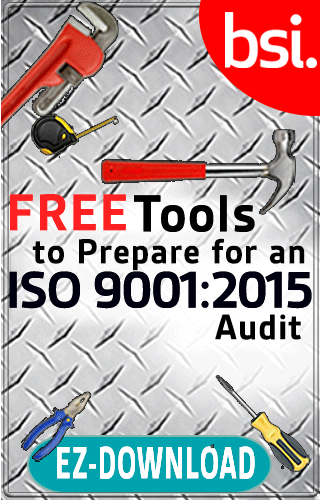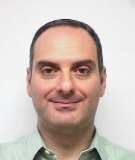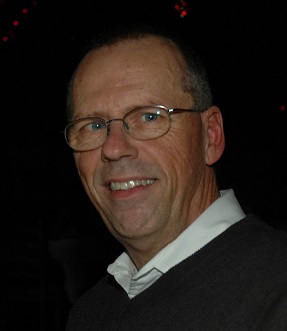|
Section
0401 |
|
|
April
2018 (Volume
68 - Issue 4) |
|
Our
objective: To increase awareness,
interest, and involvement in Section activities and |
| 10 - Other ASQ Events | ||
|
|
||
1.
Next
Event
Date Wednesday, April 25, 2018 Time 6:00 PM Place THE
PREVAILING RESEARCH
ABOUT PROCESS
IMPROVEMENT
- HOW TO ENGAGE PEOPLE AND REDUCE THE FREE-RIDER EFFECT
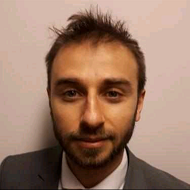 Mr. Rafael Alencar de Paula Research Assistant and Ph.D. Candidate Ecole Polytechnique **************************************
Please
join us on April 25, 2018 to listen to our guest speaker present the
topic of Process
Improvement and Engagement. |
2.
Ad
/
Publicité
|
||||||||||||||||||||
|
ABOUT THE EVENT The prevailing research about process improvement has as its base the three following pillars: (1) Data analysis (2) Persuasive technology (3) Creating company habits These areas are fundamental to increase engagement and consequently the sustainable growth of the company. In this presentation, our speaker will detail how companies are applying these pillars and the expected results for the future. ABOUT THE SPEAKER Rafael Alencar de Paula is a research assistant and Ph.D. candidate at Ecole Polytechnique de Montreal. In this role, he help other Masters and Ph.D. students on four different projects: three data science projects where the aim is to use statistical models to predict failures, and one project with hospitals in Montreal and Brussels to reduce hospital infections. Before arriving in Montreal at the end of 2014, he completed an Environmental Engineering degree and a Masters in Occupational and Work Safety Engineering in the São Paulo Faculty of Industrial Engineering. Also in São Paulo, he worked for five years in management consulting for different companies. During this period, he worked on two main projects. The first one was in the Albert Einstein hospital, where the team had the goal of reducing a patient's stay-time in the hospital. The second, where he worked for three years, was in the biggest South American airline company called LATAM. The department was responsible for finding, designing, adapting, implementing and sustaining every action related to jet-fuel savings. He was responsible for the maintenance ground and auxiliary power unit (APU) actions. *****************************************
Bring
your business cards and be ready to
network. Dr.
David Tozer
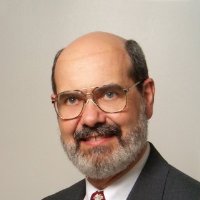 E-mail: event@asqmontreal.qc.ca 3. Upcoming ASQ Section
401 Events
May
30, 2018: Biomimicry,
Innovation Inspired by Nature
with Dubravka Kusmic
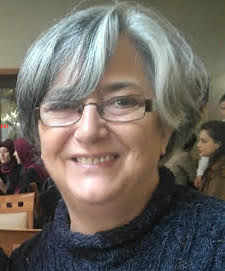 SYNOPSIS:
After three industrial revolutions, and all the damage done to the
planet, are we at the point of no return? We are facing
“Industry 4.0". Our manufacturing processes, new products
design, can it contribute to the sustainment efforts? What is going to
be the competitive edge between manufacturers? Let’s explore
the answers offered by Nature.
4. The Editor's Corner
On April 4th, I was in the midst of another AS9100 re-certification audit. During a break in the proceedings, I went online to see the latest happenings and sure enough, something had happened in the Montreal area (in Repentigny to be exact) that caught my attention. A loaded semi-trailer, left in the raised position, slammed into a recently constructed pedestrian overpass, sending its load of cornmeal in all directions and forcing the partial closure of a stretch of Highway 40. The highways were eventually cleaned up and the brand new overpass was dismantled for safety reasons. And most imporatntly, no one was physically hurt in any fashion and no lives were lost. 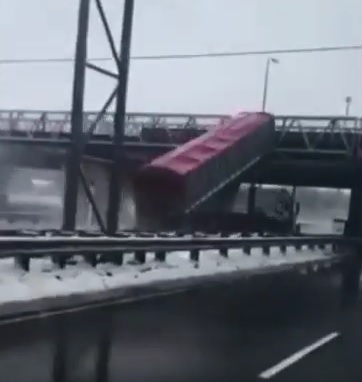  Right before impact At impact As is usually the case when I witness incidents like this, my brain goes "Quality" and starts asking all the questions we are accustomed to ask as Quality professionals: 1) Why was the trailer in the raised position? 2) Was the driver aware that the trailer was in the raised position? 3) Is there some kind of dashboard indicator that should indicate if the trailer is in a raised position? 4) If yes to (3), was the indicator malfunctioning? Or did the driver not notice? 5) Was the driver properly trained to operate the vehicle, and for how long had he/she been doing so? 6) Etc. In conclusion, I look forward to the results of the investigation into this incident, and what can be done to avoid repeat occurences. *******************************************************
Any feedback? Click on the link in the bottom right corner of this section and let me know. Thanks. |
|||||||||||||||||||||
5.
A Word
from
your Section Chair
How SICK are you? You have a cold, you sneeze, you blow your nose and you feel numb, dizzy. You go to work or you stay home? It depends I hear you say. It depends if you have coverage or if you work on contract. It depends if you get paid or if you don’t is a fair reason. But is it a good one? I guess whether you are a full timer with an insurance package (some better than others) or contractual with no health support, you can choose but can you really choose? Some of us, I am in this category, when you have engagements, you meet those engagements. Sick or not well is not an excuse for not going to work, insurance or not. Of course I hear some of you say "Why do you come in and spread your germs and make us all sick?" My thinking is different. If I don’t give it to you (it’s only a very short infectious period), your kid, or neighbour, or family for that matter (for sure with daycare) will spread it to you, so why not me? If you are not strong enough, maybe it’s time you build up your antibodies and strengthen your immune system. Furthermore, and this is my main reason for going to work anyway, if someone’s input depends on my output (SIPOC), it is more for the process breakdown, the missing output that will stop the production chain and reduce the productivity of my employer/customer. So until we all do like Japan, let’s assume a little cold sometimes. Voila! Respectfully yours! PS: Look me up in Linked-In and read more about me; just say you read this article and give your opinion or else click on the adjoining feedback link for a more personal comment or exchange. |
|||||||||||||||||||||
6.
Had
You Come
to the
Last Event
By Eric
Hosking,
Senior Consultant to Shainin, CQE, CSSBB and
CQA
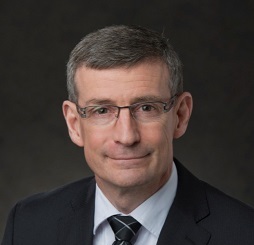 Had you come . . . Risk Management The
March event was special in that we enjoyed one of the largest turnouts
in recent memory with over thirty members and non-members attending
Mutair Kadiri's talk on Risk Management. Mutair, who has recently
joined CN Rail as a Risk Management Manager, lives in the
center of on-going corporate conversations on how to deal with the
ever-present risks in one of North America's big 5 rail companies.
His talk was generic to the subject of risk and his teachings can be applied in any industry. He talked a bit about the philosophy surrounding the prospect of facing risk. A caveman who does not venture out to face the risks of the world around him does not eat. In the same vein he touched on the Chinese symbol for risk which is a composite of two symbols, one for danger and one for opportunity. He lead the group through the definitions of risk including Bernoulli's first attempt to quantify risk along two dimensons: freqeuncy and effect. Mutair then took us through the corporate risk management framework and talked to the 7 steps of the risk management process. He stressed the benefits of anticipating and assessing risks and mitigating them by action before they were realized when addressing them becomes reaction. We learned of regulatory mandates that have forced his industry to close risks on very short timelines. He also mentioned software that is available for risk management assessment and tracking. Many attendees had come to compare the rail industry to their own. Feedback following the event was very positive, the consensus being that Mutair had done an excellent job. |
|||||||||||||||||||||
7. Voice Of The
Customer
The study aggregates ASQ customers into three profiles: members in their early 30s, in their early 40s and in their mid 50s with different career phases, motivators and aspirations. The older members are a very stable and loyal group. Tenure in the ASQ among the younger profiles is typically very short. This is an area where ASQ struggles to find solutions. Locally ASQ 401 has been trying out venues that allow more of our younger members to easily be a part of our events. In addition our leadership team is going through an evolution to bring on board a younger and more diverse team to fill positions left vacant by older members who are leaving.
Part of the quarterly meeting focused on the major transformation that ASQ HQ is trying to effect across the ASQ section network. This includes centralizing all the section web sites so they adhere to a common format. It also means centralizing funding which may have a negative effect on Section 401's ability to host events. The effort is moving ahead quickly, but there is a vigorous debate as to the desirability of all of the proposed changes.
Our
recent event was favoured by a record turnout which was a bit taxing
for the venue. Notwithstanding the speaker, Mutair Kadiri was given
high marks with 97% according a 4 or 5 on 5 for his talk on Risk
Management. The venue, Via Marcello, was given an 80% because we were a
bit crowded at the table.
Overall though the event was still given high marks with a 95% rating. |
|||||||||||||||||||||
8.
Welcome
to our New Members
MARCH
2018
Marie-Josee Delisle Melissandre Drouin Khalil Elhadaoui Barbara Joseph Jessica Moreau Najib Ouballa Manoj Pai Carl Turcotte |
|||||||||||||||||||||
9.
Organziation
Members
ASQ Montreal Section thanks our Organization Members: |
|||||||||||||||||||||
10.
Other
ASQ
Events
|
|||||||||||||||||||||
11. ASQ NewsTransformation Questions Improve Problem-Solving
Skills
The Sixteen Golden Traits |
|||||||||||||||||||||
12.
ASQ
Montreal Section Education Program 2018
By
Dr. David
Tozer,
Ph.D., ASQ CQE and SSBB, Education & Audit Chair Having ASQ certification gives you an edge in the market and can significantly increase your income. ASQ Certification often leads to higher paying employment. The money invested in education and certification increases chances of finding employment quickly in the down sizing environment we live in. People who take the section sponsored refresher courses, and spend at least twice as much time as spent in the classroom on self study, have an 80%, or better, chance of passing the examination on the first attempt. Certified Quality Engineer Topics include: quality concepts, cost of quality, human resources, team formation and group dynamics, inspection, metrology, sampling, reliability, quality standards, quality audit, statistics, design of experiments, process improvement, liability, and modern management methods for improving quality. Certified Six Sigma Black Belt Topics include: quality concepts, cost of quality, enterprise wide deployment, business process management, project management, team formation and group dynamics, define, measure, analyze, improve, control, lean enterprise, statistics, design of experiments, and design for six sigma. Certified Six Sigma Green Belt Topics include: quality concepts, cost of quality, enterprise wide deployment, business process management, project management, team formation and group dynamics, define, measure, analyze, improve, control, and statistics. Certified Manager of Quality/Organizational Excellence Topics include: quality concepts, quality planning, customer focus, quality standards, project management, cost of quality, team formation and group dynamics, human resources and improvement.
Certified
Quality Auditor Topics
include: quality concepts,
team
formation and group dynamics, management responsibility, audit
objectives, audit preparation, audit conduct, audit reporting,
sampling, and basic statistics.
Certified Quality Inspector Topics include: quality concepts, team formation and group dynamics, geometry, metrology, reading drawings, mechanical processes, statistical process control, inspection, and sampling. Calendar and Registration Form Questions? In house courses, etc.: Dr. David Tozer: (514) 694-2830, education@asqmontreal.qc.ca
|
|||||||||||||||||||||
13.
Executive
Committee Meetings & Officers
Section Executive
Committee
(Leadership Team) Meetings are held at different locations, starting at
6 PM. The next regular meeting is tentatively scheduled for: May
2, 2018 Consult the List of Your Executive
for
2018 here
|
|||||||||||||||||||||
14. Unemployed Members DuesUnemployed ASQ members receive a discount on their membership dues based on consecutive years of membership.
Eligibility Criteria
Benefits
NOTE: The following links require that you be logged into your account before you try to activate them. Download the ASQ Unemployment Program
Application
PDF (105 KB) |
|||||||||||||||||||||
15.
Feedback
Please send us your comments about the ASQ Montreal Section 0401 E-Newsletter (topics, layout, length, etc.). Do you want to contribute an article (English or French) or a good idea? Contact us by e-mail. |
|
||||||||||||||||||||
Pass
it on
We invite you to forward this Newsletter to friends and colleagues who may be interested. |
|||||||||||||||||||||
|
The
ASQ
Montreal
Section 0401 Newsletter is prepared by and published for its members. How to
Opt Out. This
e-mail
is being sent in the course of normal Montreal Section
business
to the e-mail address of record. We are not responsible for forwarded
e-mails. If you no longer wish to receive e-mail communications from
the Montreal Section (your section) of ASQ, please visit your ASQ
account to unsubscribe or
reply to this message, indicating Opt
Out in the
e-mail body
and in the title. |
|||||||||||||||||||||

